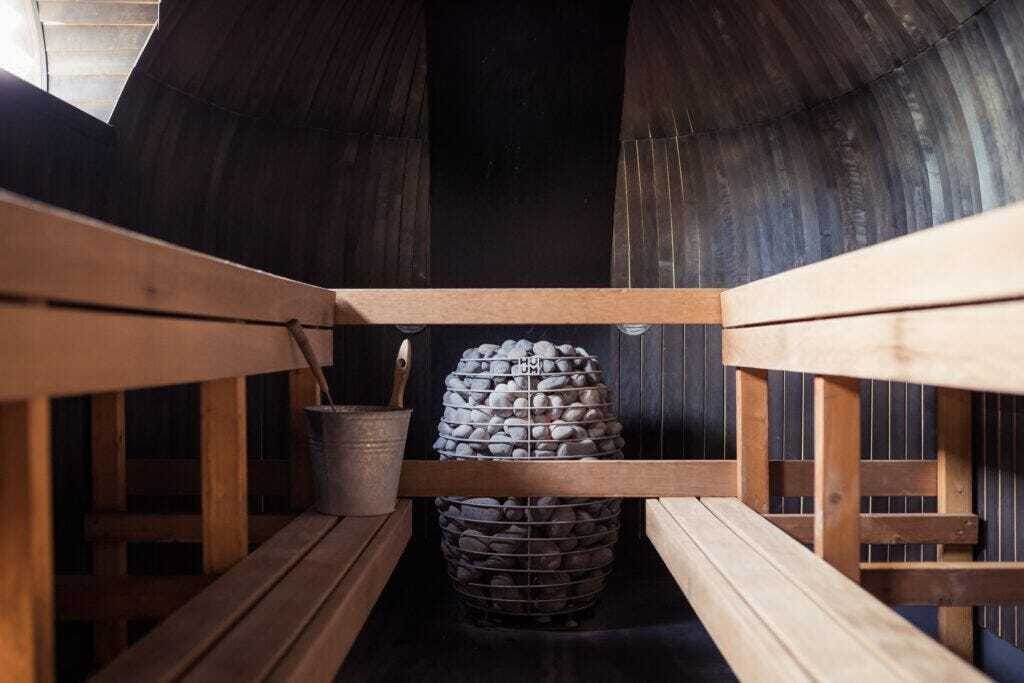- Future of Business w/ Delaney McGuire
- Posts
- How to bounce back from a High Stress Day
How to bounce back from a High Stress Day

Stress. A catch-all term for things that add tension to our nervous system...
Leaving us high-strung and low-energy.
As a result - our work, mood & relationships suffer.
Sure, life happens.
We'll have days where deadlines have us working late into the night...
Or we push our run a little harder than we should have and hour body is paying the price.
The important thing is know how to:
1.) notice that our body is out of equilibrium & in need of quality recovery
2.) apply the correct measures to get that recovery as efficiently as possible (saving us up to a week of low-quality energy)
Before I dive in and share the top 4 things you can do for effective nervous system recovery, I want to share a personal example.
Yesterday I flew from Costa Rica back to the US, in which during that time I spent 24 consecutive hours on planes & in airports.
During that time I barely got quality movement, food quality was low, slept 3 hours, very dehydrated... all leading to inflammation being very high in my body (equating to a 55 readiness score via my Oura ring).
Traditionally, it can take 3-7 days to bounce back and log a significantly high readiness score, yet even though I was home at 5pm - I awoke the next morning with a 91 readiness score.
I am going to tell you how you can do this too, whether you just had a long flight, long day at work, or pushed your body extra hard today.
6 tools for efficient recovery:
hydration
hydrate. hydrate. hydrate! Your body is 70% water, and as such water is key to ensuring that your body is functioning properly. Staying properly hydrated has a host of benefits, including: regulates body temperature, keeps joints lubricated, prevents infections, delivers nutrients to cells, keeps organs functioning properly, improves sleep quality, cognition and mood.
morning sunlight
Studies show that getting 30 mins+ of sunlight early in the day is the best thing you can do to reset your circadian rhythm and ensure you get high quality sleep the upcoming night. Not to mention, sunlight is absorbed by the skin & eyes, which tells the body to wake up - generating more energy for you throughout the day. Exposure to sunlight in the morning is also associated with elevated mood levels, which never hurts after a high stress day.
light movement
If your body is recovering from high-stress, you wont want to push it too hard today. As a chronic "over do-er", I have found tremendous benefits for myself in learning how to give myself proper rest days. On a recovery day, consider adding 30 mins of walking or yoga to your sun exposure in the morning. If you do this while fasted, you will also increase fat burning throughout the day (which is great if you found yourself stress munching on donuts the day before).
Your body is likely tight & constricted as a result of the previous days stressors. Adding some stretching & foam rolling to your recovery day will deeply soothe the nervous system, and allow you to get great rest the coming night.
antioxidant rich foods
Antioxidants fight inflammation, which is often very high in the body following an intense day. Foods high in antioxidants include broccoli, spinach, carrots, sweet potatoes, asparagus, avocado, beetroot, radish, lettuce, pumpkin, dark chocolate, berries, and nuts. You can also consume 1000 mg of curcumin (which I do on a daily basis). Curcumin is derived from tumeric, and has amazing anti-inflammatory benefits.
hot & cold therapy
Taking a cold shower, getting in a sauna, or plunging in an ice bath are all phenomenal ways to rid the body of inflammation, increase mood & energy levels naturally, and cleanse the body of toxins. As little as two minutes in a cold shower will give you some of these benefits. If you want to truly maximize the results, try 3 rounds of alternating between sauna (20 mins) and ice bath (2-5 mins).
amazing sleep
I take this tip from human optimization expert Ben Greenfield, which is taking up to 60mg of melatonin the evening back from crazy travel. As a benchmark, 3 mg is usually enough to do the trick for me.
Last night, at 8pm I personally took 30 mg and knocked out for 14 hours. This was rest my body desperately needed, and the deep sleep allowed for deep recovery, ensuring I woke up with my body feeling ready to take on the day.
This is my toolkit for speedy recovery. Test it out, and let me know how it goes. Anything you would add? Send me a message at delaney@https://elv8life.com - I'd love to hear from you.
Have a friend who would love this message? Do them a favor and forward it there way.
With Love & Gratitude,
Delaney McGuire